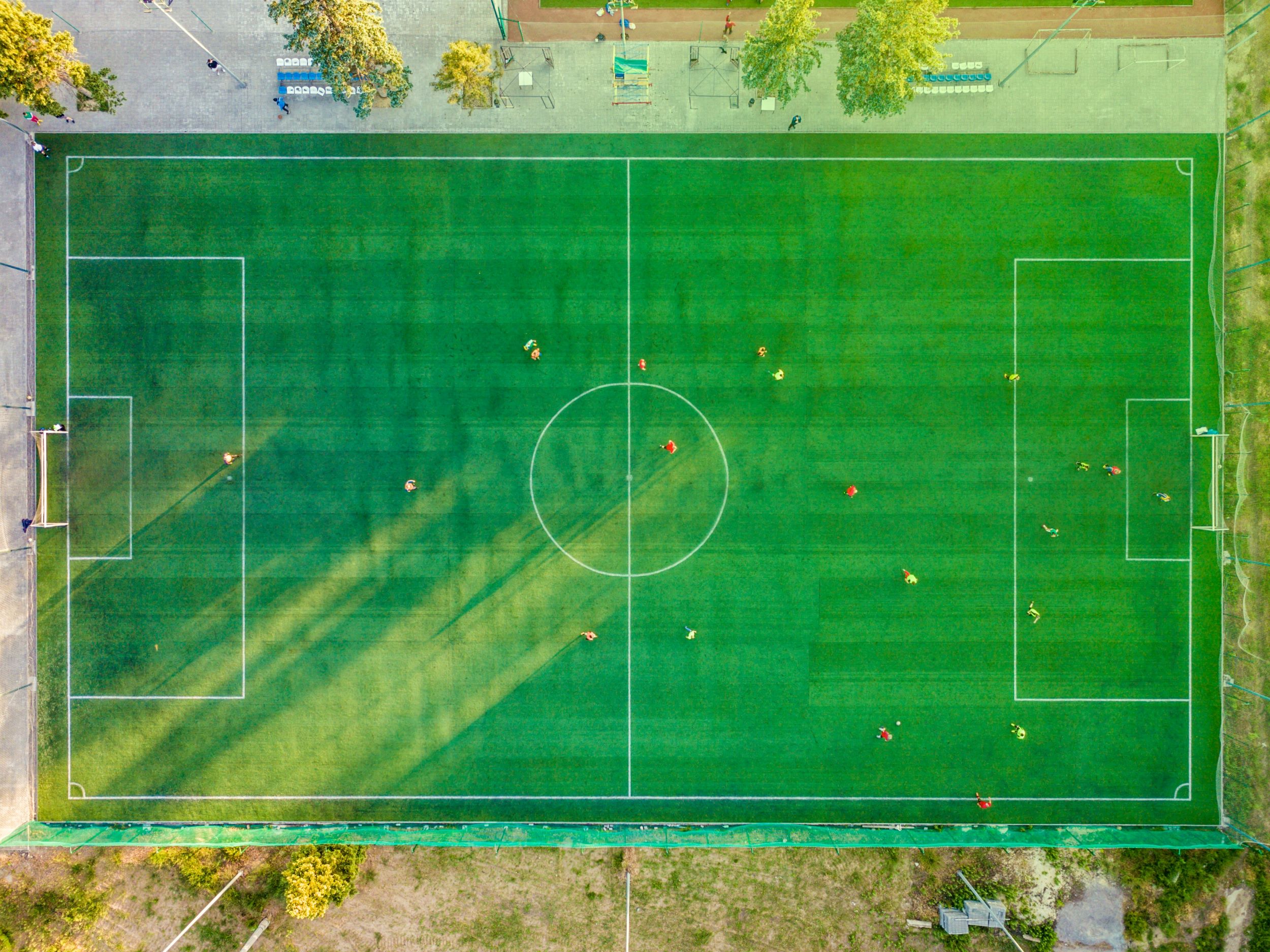What characteristics come to mind when you are asked to describe an athlete? Hardworking. Dedicated. Driven. Perfectionistic. Motivated. Disciplined. Committed. Focused. These are also characteristics that can describe someone struggling with an eating disorder. While these are not inherently negative characteristics, there is a fine line between these characteristics having a positive or negative impact on an athlete’s life. Keep reading to learn about 4 common eating disorders in athletes.
What is the Relationship Between Eating Disorders and Athletes?
Being an athlete, particularly an elite athlete, puts you at a higher risk of developing an eating disorder. The mental and physical stress that athletes endure, the pressure to be the best, combined with the way diet culture has found its way into sports culture, are just a few factors that make athletes more susceptible to disordered eating patterns. You can read more about athletes and eating disorders in our blog here.
In this blog, you will read about some common eating disorders seen in athletes, what they are, why they might develop, and how to go about seeking help.
I want to make it clear that these are not the ONLY eating disorders seen in athletes. Furthermore, a formal diagnosis is not needed to be worthy of seeking support for your struggles with food. Athletes are humans first. They can struggle with their relationship with food in various ways. And each of those ways deserves individualized, compassionate, weight inclusive care. No. Matter. What!
1. Orthorexia
The easiest way to define Orthorexia is as “an obsession with ‘healthy’ eating.”
As an athlete, it makes sense that you want to be the best you can be. Whether you’re playing in highschool, in college, or even just recreationally, you’re probably always looking for ways to improve your game. This may include getting private training sessions to help improve your skills. Meeting with your coach to ask for feedback. Or looking into altering your food intake. If you were told that eating “healthy” would positively impact your performance, you are not alone. And I don’t blame you for believing this advice. While I’d like to believe that the person telling you this did not have ill will, eating healthy can start with good intentions and still become very problematic. If you are obsessively reading nutrition labels. Or find yourself cutting out whole food groups. Or have an increased concern about the health of ingredients. And “healthy” eating has started to become obsessive and stressful. These could be signs of Orthorexia. There are so many nuances to the term “healthy”. It can mean so many different things to different people. And the nutrition needs of every athlete are individualized. This is why it’s important to work with a dietitian. Specifically one that specializes in athletes and eating disorders. To help you figure out your specific needs.
2. Anorexia Nervosa
Chances are you’re somewhat familiar with anorexia nervosa. But what is anorexia nervosa? Clinically speaking, it is an eating disorder characterized by restrictive eating, weight loss and/or fear of weight gain, and distorted body image.
There is a myth in the sports world. More common with some sports than others. That a lower weight equals better performance. I said “myth” for a reason, because this is far from true. Practice, coaching, sleep quality, food intake, and genetics are all factors that impact performance. However, just like with sleep, not eating enough will negatively impact your athletic performance.
If you have ever been told to eat less or to lose weight to “improve” your performance, I am sorry. Also, if you did lose weight to try to “improve” your performance and it did the opposite, then you are not alone. Restrictive eating can affect every aspect of an athlete’s life, not just performance …
- Can make it harder to sleep
- More difficult to focus in class
- Impact decision making
- Increase risk for injury
These are just a few examples of how restricting can negatively impact your life. If you are interested in learning how to use nutrition to optimize your athletic performance rather than hinder it, you might benefit from reaching out to an eating disorder dietitian. Specifically, one who works with athletes.
3. Binge Eating Disorder
What is Binge Eating Disorder? It is an eating disorder characterized by eating large quantities of food, fairly quickly, and in a short amount of time. Loss of control is commonly experienced with binge eating disorder. Often followed with feelings of guilt, shame and distress.
Contrary to what you might have heard previously, binge eating disorder is usually a result of restriction. Many weight-class athletes, such as wrestlers or rowers, will often try to make weight by restricting their food and water intake. As will athletes who wear tight clothing or who’s bodies are often on display, like gymnasts or swimmers.
However, this is not how our bodies are wired for survival. We need food to survive. So whenever you restrict yourself, your body still craves food and will do whatever it can to make sure it gets the food it needs. This can result in binging. Binges are a biological response to keep you safe, to keep you alive. It’s hard to fault your body for simply trying to keep you fed, especially if you are consistently restricting yourself.
All that being said, restriction is only one component of binge eating disorder. And any athlete, regardless of their sport, can struggle with binging. Remember that everyone is worthy of help and support. If you think you may need help, reach out to one of our eating disorder dietitians at Courage to Nourish for individualized support.
4. Disordered Eating
What is disordered eating? While this is not a formal diagnosis. It is incredibly common. Disordered eating is a term that classifies abnormal eating behaviors. Even if they do not meet criteria for an eating disorder diagnosis. Struggling with disordered eating vs. an eating disorder does not make you any less worthy of treatment or support!
Diet culture has made many disordered eating habits seem so common. But just because they are common, does not mean they are normal or helpful. Diet culture has made its way into sports culture, too. There are behaviors that your friends, family, and teammates might engage in that seem “healthy” but could actually be a sign that your relationship with food is tarnished. These behaviors include but are not limited to the following …
- Only eating dessert on days you have practice/games
- Exercising on an empty stomach
- Not refueling your body after a workout
- Eating fruits and vegetables first
- Limiting carbohydrates
- Skipping snacks throughout the day and only consuming meals
- Avoiding Gatorade or other sports drinks because they contain calories
- Drinking water instead of getting food when you feel hungry
- Consuming coffee or other caffeinated drinks in place of a meal
Closing Thoughts on 4 Common Eating Disorders in Athletes
Thank you for reading our resource on 4 Common Eating Disorders in Athletes. If you are an athlete (or not) and any of this resonated with you, it is not your fault, and you are not alone. You are worthy and deserving of support. If you have more questions and think you could benefit from more individualized support, please reach out to us to receive support from one of our wonderful eating disorder dietitians!
Contact Us
Courage to Nourish is a group of eating disorder specialized dietitians. We have in person locations in Alexandria, Virginia, Columbia, Maryland. and College Park, Maryland. We offer virtual services across the state of Virginia, Washington DC, Pennsylvania, and Colorado. We offer individual nutrition therapy. As well as support groups. We would love to guide you in building a better relationship with food.
Contact us for more information. And to schedule a discovery call. Also, sign up for our client or clinician newsletter!
Take one of our eating disorder quizzes:

Kathryn is a weight-inclusive, anti-diet eating disorder dietitian at Courage to Nourish. She specializes in working with adolescents and families, athletes, and individuals recovering from ARFID. Kathryn sees clients in person at the Columbia, Maryland office and virtually throughout Virginia, Pennsylvania, DC, and Maryland. To schedule a discovery call with Kathryn, click here.


